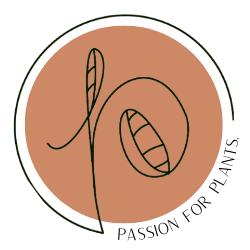9 Worst Foods To Avoid With High Blood Pressure (Beyond Salt)
Have you ever wondered about the connection between what's on your plate and those blood pressure numbers?
Well, today, we'll explore just that.
This article will be a detailed explanation of the foods to avoid when suffering from high blood pressure.
We’ll take a look at some common foods that might affect blood pressure levels and learn simple steps to make heart-friendly choices.
Now, let's get started on our path to a healthier heart:
Foods To Avoid With High Blood Pressure
Here are the worst foods for people who are suffering from high blood pressure:
Salty Foods
High blood pressure is often linked to excessive salt consumption.
Salt, or sodium, is a mineral found in many foods, and salty snacks like chips and pretzels tend to be culprits.
Sodium can cause the body to retain water, leading to increased blood volume and, consequently, elevated blood pressure.
To support heart health, it's crucial to be mindful of sodium intake, read nutrition labels, and opt for lower-sodium alternatives.
2. Sugary Foods
The relationship between high blood pressure and sugary foods is complex.
Consuming too much sugar contributes to weight gain and obesity, both of which are significant risk factors for hypertension.
Foods high in added sugars, such as candies, sodas, and pastries, can lead to insulin resistance, inflammation, and metabolic syndrome, which can negatively impact blood pressure.
Choosing whole foods and beverages with less added sugar can be a proactive step towards maintaining a healthy blood pressure.
3. Saturated Fats
Foods rich in saturated fats, like fatty cuts of meat, fried foods, and full-fat dairy products, can contribute to high blood pressure and other cardiovascular issues.
Saturated fats can raise LDL cholesterol levels, leading to plaque buildup in the arteries and reducing blood flow, making them one of the foods to avoid with high blood pressure.
To promote heart health and manage blood pressure, it's advisable to choose lean protein sources, incorporate healthy fats from sources like avocados and nuts, and opt for low-fat dairy products.
4. Frozen Meals
Many frozen meals are laden with sodium, preservatives, and unhealthy fats.
Excessive consumption of these meals can contribute to weight gain and elevated blood pressure.
Reading nutrition labels, selecting frozen options with lower sodium content, and incorporating fresh, whole foods into the diet are essential steps in managing blood pressure.
5. Restaurant Food
Restaurant meals often contain hidden salt, sugar, and unhealthy fats.
Large portion sizes can also contribute to overeating, leading to weight gain and increased blood pressure.
Being mindful of menu choices, asking for modifications, and sharing dishes can help control portion sizes and reduce the intake of potentially harmful ingredients when dining out.
6. Pickled Foods
While pickled foods can add flavor to meals, they are often high in sodium.
Excessive sodium intake can contribute to fluid retention and elevated blood pressure.
Choosing low-sodium pickled options or enjoying these foods in moderation is essential for individuals aiming to manage their blood pressure.
7. Processed Meat
Processed meats are among the worst foods for blood pressure because they are mostly sausages, bacon, and deli meats, which often contain high sodium levels and unhealthy additives.
Regular consumption of these processed meats has been linked to an increased risk of hypertension.
Opting for lean protein sources such as poultry, fish, and legumes can be a healthier choice for those looking to maintain a balanced blood pressure.
8. Cheese
While cheese can be a delicious addition to meals, it often contains high levels of saturated fat and sodium.
Excessive intake of these components can contribute to elevated blood pressure.
Choosing lower-fat cheese options and moderating portion sizes can help individuals enjoy cheese while prioritizing heart health.
9. Canned Soups
Canned soups are among the foods to avoid with high BP because they are loaded with sodium.
Consuming too much sodium from canned soups can lead to fluid retention and increased blood pressure.
Opting for low-sodium or homemade soup options can be a healthier choice for individuals looking to manage their blood pressure.
Conclusion
That wraps it up - you should be feeling a little more knowledgeable about foods to avoid with high blood pressure! Or at the very least knowing which foods to eat less of.
We've covered a lot, and the key takeaway is that small changes can lead to significant improvements.
So, how are you feeling about these changes?
Are there specific foods you're ready to cut back on, or perhaps some healthier alternatives you're excited to try? Let me know in the comments!









